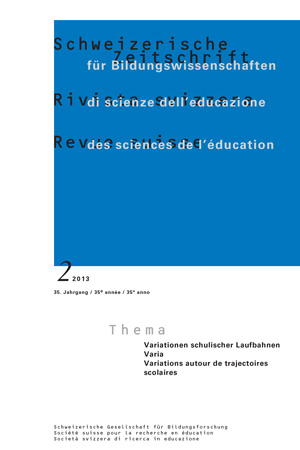Conception and analysis of learning by investigation settings in biology: how to combine scientific validation autonomy, conceptual deepening, and curriculum necessity?
DOI:
https://doi.org/10.24452/sjer.35.2.4913Keywords:
Biology teaching, secondary school, scientific investigation teaching and learning setting, collaborative writingAbstract
Inquiry-based learning (IBL) is promoted in science education across Europe and imposed in France. At its core is transferring responsibility of questions to students, which may conflict with the teacher’s responsibility to insure curricular coverage and in-depth understanding of scientific knowledge. We developed over 10 years an IBL design scaffolded by a shared writing space, for high school students. We analyzed in detail the last four years, and produced an appropriate conceptualization of the design, an abstract description and identified relevant variables (epistemic complexity). Within a Design-Based Research framework, we analyzed student writing recorded on the writing space server, and student questionnaires at end of year as well as one year later at university. We propose a clear separation of pedagogic/didactic and scientific aspects and a total of 27 design rules that have been tested and discussed. A synthesis of the model reveals three interdependent variables i) student-assumed responsibility of a share of knowledge produced, ii) a common goal of scientific knowledge improvement, iii) the role of authentic resources to guide the conceptual refinement of questions.
Downloads
Downloads
Published
Issue
Section
License

This work is licensed under a Creative Commons Attribution 4.0 International License.



